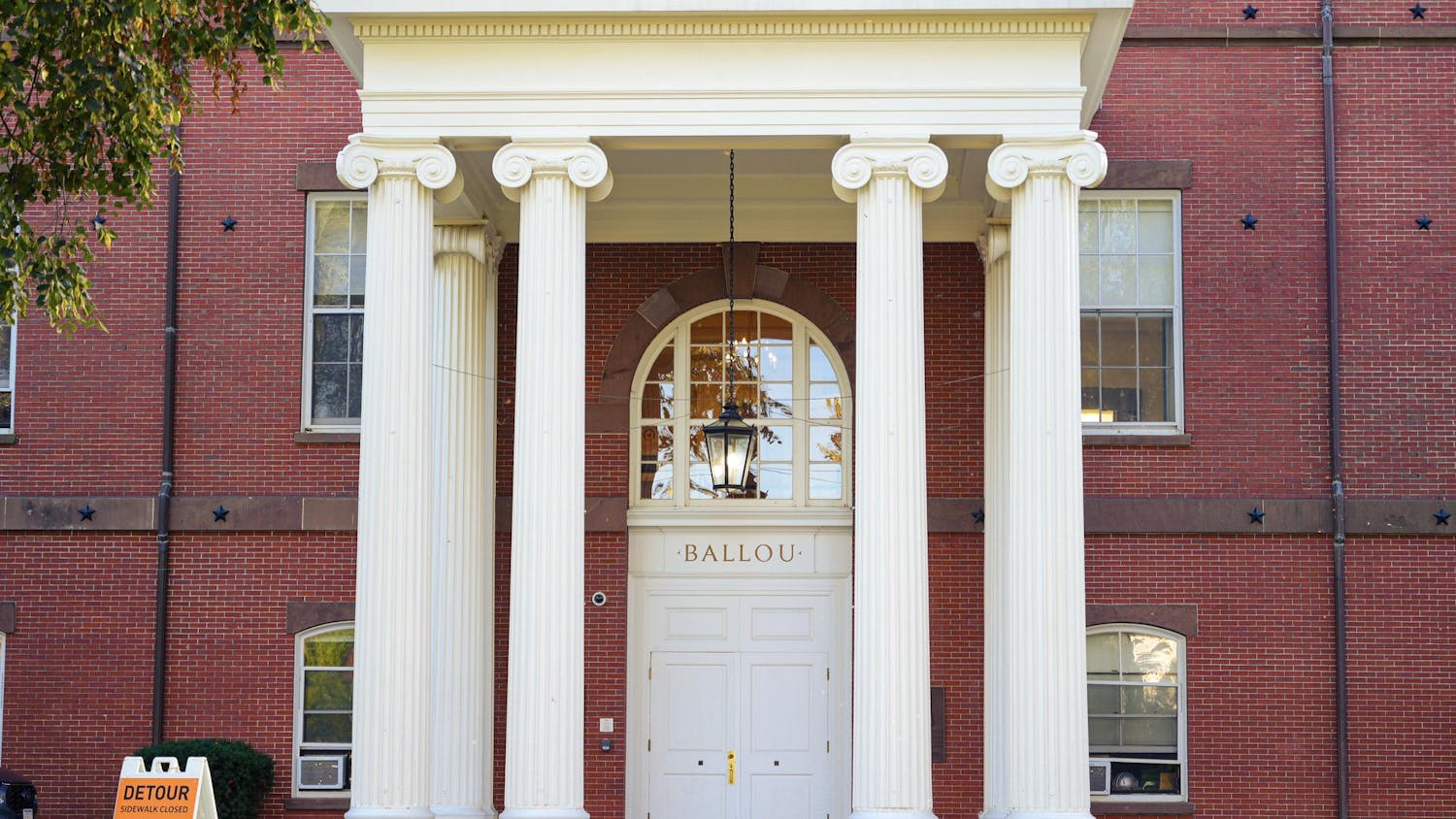A meeting of queer student groups was held on Jan. 25 in the Lesbian Gay Bisexual and Transgender (LGBT) Center to brainstorm ways to better serve the queer community at Tufts University, LGBT Center Director Nino Testa said.
The discussion focused on three themes, according to sophomore Emily Lansky, leader of the Women's Group at the LGBT Center, and sophomore Cecilia Petit, who recently brought Black and Pink, a national organization which advocates for members of the LGBTQ population who are or have been incarcerated, to Tufts.
Students touched on improving the roles of both the Rainbow House and the Queer Student Alliance (QSA), as well as refining the new student orientation which takes place at the beginning of the year.
Lansky and Petit said that the greatest strides were made as a result of their talk about the role of QSA.
“The biggest accomplishment was a conversation around the role of QSA and how it can support other queer student groups, as it is something like an umbrella group," Lansky and Petit told the Daily in an email. "An idea was floated to have QSA become something like a queer student board to help provide support for other queer student groups."
Attendees also tried to think of a new game to replace ‘Guess the Straight Person’ during new student orientation.
“We finally decided to totally cut the ‘Guess the Straight Person’ game because it puts queer students on display and perpetuates stereotypes in trying to break them down,” Lansky and Petit said.
From there, the discussion moved to address how students would try to make the Rainbow House a more inclusive space, according to Lansky and Petit. In general, they said that they were pleased with how the meeting went.
“We were happy with the outcome and feel that Nino has begun a positive culture shift to campus that has made the LGBT Center more accessible to many students,” they said.
Testa said he scheduled this meeting back in December.
“I wanted to give students a space to talk about the state of queer student life at Tufts, particularly the successes and failures of formal and informal student groups,” Testa said. He also wanted interested students to talk collectively about what they would like to see moving forward.
Within the meeting, students discussed the past, present and future of queer student life on campus, giving them a helpful opportunity to define and discuss their own changing missions and outlook of groups on campus, according to Lansky and Petit.
“The meeting was also a way to reconcile different needs of queer students on campus," they said. "It was a way for Nino as a new director, to get in tune with the needs of students, and to hear directly from queer students about their various needs.”
According to Lansky and Petit, the Jan. 25 meeting allowed everyone to come to a common understanding and set the foundation for creating future plans.
“Although the meeting kicked off new ideas and plans, students are still in the process of determining exactly how new programming and structures will look,” they said.
Testa was also happy with the students’ participation in the discussion and willingness to share their perspectives.
“Tufts has come to be known as a queer-friendly institution, but this is only because people continue to care and focus on how we can improve our campus climate," Testa said. "Those involved in LGBT groups at Tufts are deeply committed to improving campus climate."
Testa said that he feels confident that the town hall meeting helped set important conversations into motion.
“I just wanted to make sure that as we move forward making plans in our respective groups, we keep our eye on the big picture: how do students imagine the legacies of their respective groups after they have graduated?" he asked. "What structural changes could be made to ensure the continued vitality and diversity of queer student life at Tufts?”
Lansky and Petit are hopeful that this initial town hall meeting will encourage change.
“We hope that the work this meeting has begun will allow the LGBT Center to serve more queer students and will create structures that can provide support throughout the coming and going of student leaders," they said.
More from The Tufts Daily





